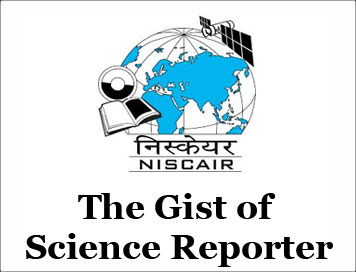(GIST OF SCIENCE REPORTER) MCQs on Human Body: February 2023
(GIST OF SCIENCE REPORTER) MCQs on Human Body
(FEBRUARY-2023)
MCQs on Human Body
1. Identify the only part of your body not having the power of self-regeneration.
a. Heart
b. Teeth
c. Brain
d. Tongue
2. All the blood vessels of an average human body connected end to end can make how many circles around the earth?
a. Two
b. Four
c. Six
d. Seven
3. Which part is unique to humans or found only in human beings?
a. Molar teeth
b. Eardrum
c. Chin
d. Four chambered heart
4. We have this vital part in a pair but only one is necessary to live comfortably.
a. Lungs
b. Kidneys
c. Testes/Ovary
d. All of these
5. The sound cracking your fingers, toes or other joints is due to which of these actions?
a. Friction between joint bones
b. Friction between articular cartilages
c. Compression of synovial fluid
d. Bursting of air bubbles in joints
6. Find your body part with its own pulse.
a. Heart
b. Lungs
c. Thumbs
d. Brain
7. Name your part that is similar in structure to Elephant’s trunk and Octopus’s tentacle.
a. Nose
b. Diaphragm
c. Abdominal muscles
d. Tongue
8. The genotype of all human beings is identical to what percentage or more?
a. 80
b. 89
c. 90
d. 99
9. Identify the only body part without blood supply and getting oxygen directly from the air.
a. Nose
b. Lungs
c. Cornea
d. Lips
10. How long can your brain can survive without oxygen?
a. 2 to 8 minutes
b. 8 to 10 minutes
c. 10 to 15 minutes
d. More than 15 minutes
11. Which part of the body starts eating itself on extreme starvation?
a. Brain
b. Heart
c. Stomach
d. Small intestine
12. What happens to your heartbeat when you listen to music with concentration?
a. Remain unaffected
b. Synchronized with the rhythm of the music
c. Tend to increase
d. Tend to fluctuate irregularly
13. Which of the following living parts never stop growing in a lifetime?
a. Eye and Nose
b. Eye and Ear
c. Nose and Ear
d. Ear and tongue
14. A human eye is about how many megapixels, in terms of digital cameras?
a. 400
b. 472
c. 576
d. 922
15. It is difficult to swallow and breathe simultaneously. A neonate can do it for up to what age?
a. Five months
b. Seven months
c. Nine months
d. One year
16. Which of these is true with respect to the beating of the average male and female human hearts?
a. Both beat at the same rate
b. Male heart beats faster
c. Female heart beats faster
d. It is unpredictable
17. About what percentage of our body heat is lost only from the head?
a. 20 %
b. 40 %
c. 60 %
d. 80 %
18. Identify the character not found in humans only.
a. Feeling of blush
b. Sleeping on back
c. Drawing a straight line
d. Fingerprints
19. In relation to the need and effect of water loss in your body, which of the following is true?
a. Feeling of thirst by loss of 1%
b. Fainting on the loss of more than 5%
c. Death on the loss of more than 10%
d. All of these
20. Find the smallest cell in the human male body.
a. Rod cells of the retina
b. Sperm
c. Leydig cells of testes
d. Cells on the roots of body hairs
21. Identify the only body part that does not grow in size from your birth to death.
a. Eye
b. Brain
c. Heart
d. Liver
22. Up to which minimum age human babies do not shed a tear?
a. Fifteen days
b. One month
c. Three months
d. Six months
23. In how many years a human skeleton completely renews itself?
a. 5 years
b. 8 years
c. 10 years
d. 14 years
24. How many muscles are present in your fingers?
a. Nil
b. 48
c. 109
d. More than 150
25. Which of the following parts first develops in a human embryo?
a. Mouth
b. Heart
c. Lungs
d. Anus
CLICK HERE TO DOWNLOAD FULL PDF
CLICK HERE TO DOWNLOAD UPSC E-BOOKS
Study Material for UPSC General Studies Pre Cum Mains
Get The Gist 1 Year Subscription Online
Click Here to Download More Free Sample Material
<<Go Back To Main Page
Courtesy: Science Reporter



